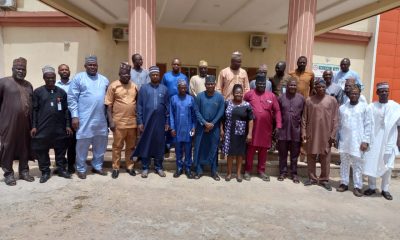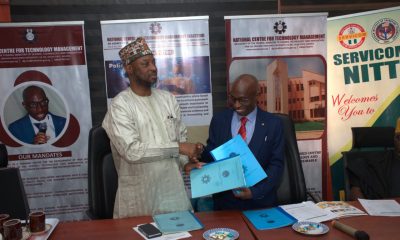News
Energy Experts Canvass For Implementation Of NACETEM Policy Document To Battle Energy Crisis
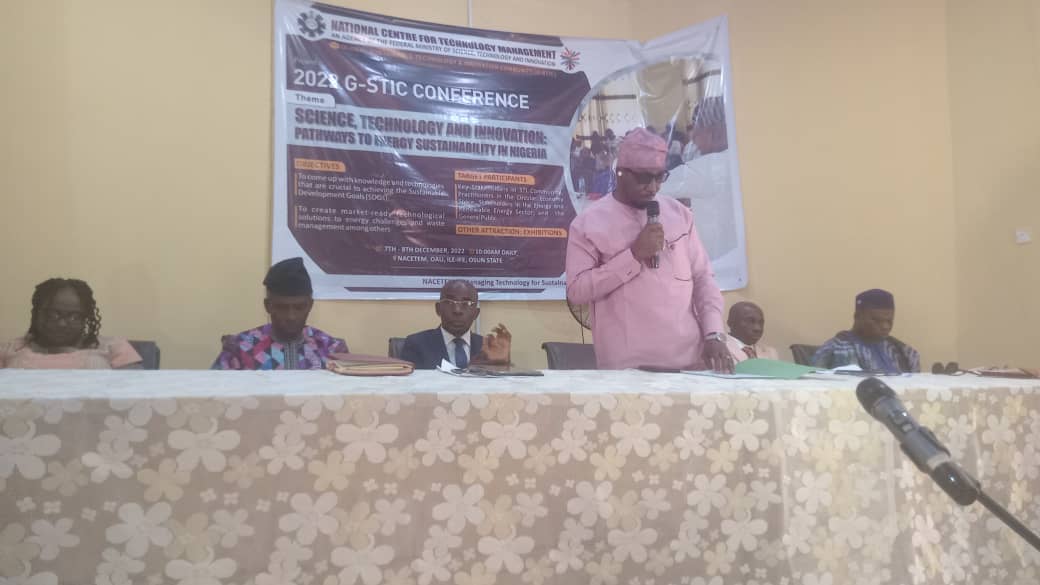
By Ayobami Agboola, Osogbo
Energy experts have called on the Federal Government to work on implementing a policy document produced by the National Centre for Technology Management (NACETEM), an agency of the Federal Ministry of Science, Technology and Innovation, for the purpose of proffering solutions to the energy crisis battling the country.
They made this known on Wednesday at the opening ceremony of a 2-day 2022 Global Science, Technology and Innovation Community Conference (G-STIC) organised by NACETEM at its headquarters, Obafemi Awolowo University, Ile-Ife.
With the theme: “Science, Technology and Innovation: Pathways to Energy Sustainability in Nigeria,” the experts including policymakers, academics and energy practitioners, addressed the many challenges associated with the global energy landscape with a special focus on Nigeria’s energy crisis, saying that the implementation of an STI document already formulated by NACETEM would bring about workable, affordable, clean, sustainable and renewable energy.
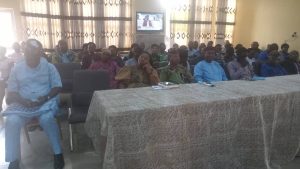
Delivering a keynote address on the conference theme, the Head of Department, Project Management, under the school of Innovation Technology at the Federal University of Technology, Akure, Dr Olalekan Apela Jesuleye, said an STI policy developed in 2012 contained solutions to energy crisis in Nigeria, adding that its implementation would grow economy and make renewable energy sustainable.
“We are looking at how we can deploy science, technology and innovation as solutions to ensure that we have sustainable energy in Nigeria. In leveraging development, energy offer an opportunity for us in line with the sustainable development goals agenda. When we talk of science and innovation, the first key thing we must look at is the policy issue that has to do with that. If we are able to come up with science, technology and innovation policy through appropriate policy, then, we will be able to look at the issue of alternative energy, especially, which Nigeria is well endowed with.
“We have come up with appropriate solution in terms of scenarios that will help us to go there but Nigeria as a nation with the profile of energy that we have must be able to leverage on the policy of STI that we have developed and NACETEM played a very key role in the development of the STI policy in 2012 under my headship as the head of department of general research in Nigeria which was anchored for the Federal Ministry of Science and Technology where NACETEM is under. The implementation of the policy and ensuring that sustainable energy. Sustainable energy is the energy produced in away that the environment is not affected, improved the standard of living of Nigeria,” the expert said.
In his remarks, the Overseeing Director-General of the agency, Omimakinde John Akintayo, said: “This conference will interrogate issues bordering on renewable energy, circular economy, green environment, among others, as well as serve as a platform to couple workable solutions to the challenges plaguing the energy sector.”
Also speaking, Chairman, NACETEM Governing Board, Hon. Adewale Haastrup, said the conference was to address everyone and every sector of the nation’s economy with a view to helping people escape poverty and create better lives.
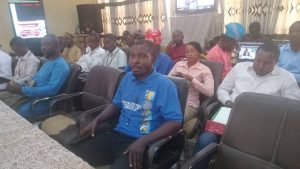 Jo
Jo
He said: “For developing nations, the need for reliable and affordable energy is more fundamental. It can improve and even save lives. In these countries, reliable energy supports expanded industry, modern agriculture, increased trade and improved transportation. These are the building blocks that help people escape poverty and create better lives.
“Today, most of the energy the world consumes comes from hydrocarbons, with crude oil being the dominant source of transportation fuels. Even with significant strides in improved energy efficiency, global energy demand is expected to rise by about 25 percent from 2014 to 2040. The implication of this is that all hands must be on deck to ensure that we focus on sustainable energy such as renewable energy, which will also preserve our environment.”
Ends
-

 News4 days ago
News4 days agoInsecurity: Kogi Schools Resume On Monday
-

 Opinion4 days ago
Opinion4 days agoDon’t Pull the Plug: Why Nigerians Are Pleading for the U.S. to Extend Its Police Training Program — and Why It Must Synergize With New Military Arrivals
-

 Crime3 days ago
Crime3 days agoVigilante Reportedly Shoots Colleague Dead In Plateau
-

 Crime4 days ago
Crime4 days agoMan Shot Dead In Ambush Along Jol-Sho Road In Plateau


